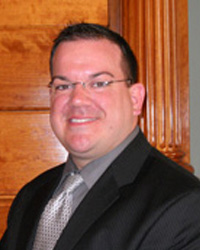Line-by-line budget reviews, more support for cultural resources and more support for Van Duyn nursing home highlight the stands on some key issues by Democrat David Stott in the District 4 race for the Onondaga County Legislature.
Stott is challenging incumbent Judy Tassone, R-Liverpool, in a rematch for the District 4 seat. Stott, a Democrat from Salina, served on the legislature from 2008 to 2010. He lost to Tassone in the last election by 138 votes. Election Day is Nov. 8.
District 4 is in the central region of Onondaga County, including Geddes, the western part of Salina, Liverpool and Onondaga Lake.
Democracywise posed three questions on some key issues to the candidates in the contested open-seat races for the Onondaga County Legislature. Here are responses from Stott:
Taxes
Q: What, if anything, do you think should be done about county taxes? Please be specific on tax proposals or budget cuts. How would you get the money required to provide public services? Raise taxes? Which? Increase fees for services? Which? What, if any, specific services or programs would you cut to balance the county budget?
A: “You don’t just work during budget season. You need to work throughout the term to see where you’re wasting money. One of the biggest things is that you look at it line by line. I don’t have a county budget in front of me, but the reality is a lot more things need to be done throughout the process. We need to work on the long-term costs of government: retirement programs, retirement plans. We need to shop around for more reasonable plans for insurance. They need to be looked at and reviewed all the time.” He criticized some salaries for some County Executive Joanie Mahoney’s staff as “just crazy.” Said Stott: “People are making a premium working for the government.”
Young People
Q: Keeping and attracting young people is a long-standing concern for our region. What, specifically, do you think the Onondaga County government should do make the area more attractive to young workers and their families?
A: “We need to maintain our parks and our cultural stuff. We have the universities and have a lot of cultural assets — well we had, I should say, since we cut the symphony. We’ve been getting away from things people have traditionally valued and enjoyed. We can do more with our park system, and we obviously need to keep working on cleaning up the lake. We need to make sure that we finish the job we started there to attract people from a recreational standpoint. The biggest thing actually is making a better job and work environments, as far as finding ways to give businesses incentives to come here. For instance, energy costs are through the roof and taxes are through the roof.”
Van Duyn Home and Long-Term Care for the Elderly
The county-owned Van Duyn nursing home provides long-term care to many of the county’s elderly. But Van Duyn is in deep financial trouble. Last year, taxpayers absorbed about $5.7 million of Van Duyn’s costs and taxpayers are expected to absorb another $3 million this year. As of March 1, 2011, the state also cut off Medicare and Medicaid payments for new admissions to the nursing home, citing unsafe conditions there. And since March, county officials and Upstate Medical University have been negotiating for Upstate to take over the home. But Upstate has not yet agreed, citing concerns about whether the state can subsidize Van Duyn. If the home closes, it’s unclear what will become of Van Duyn’s residents. At the same time, the county’s population — like the rest of the nation’s — is aging and many will need long-term care.
Q: What if anything do you think the county government can or should do to keep Van Duyn from closing? What else, if anything, can or should the county government do to meet the long-term care needs of our aging population?
A: “We’ve got an increasingly aging population. We need to look at public and private options for the elderly.” He described Van Duyn’s difficulties as “ridiculously complex.” Said Stott: “They’ve already done a lot to tighten the purse strings there, and I’m not sure how much more they can do. They need the staff and they need to be able to maintain the facility.” He added, “It’s important to keep that facility open because it’s more affordable than private facilities.” He called for sitting down with the home’s administration. “Nobody knows better than they do. We need to sit down with the administration and the faculty and go through every aspect of the way that they function — just like anything in government — and find out where they’re not being productive.” Added Stott: “You have to find inefficiencies wherever you can.”
(Beckie Strum is a senior majoring in newspaper journalism and Middle Eastern studies.)
-30-



